Take the Money and Run (1969)
“I think if he’d been a successful criminal, he would have felt better.”
|
Synopsis: |
|
Genres, Themes, Actors, and Directors:
Response to Peary’s Review: and “Virgil being foiled in one bank robbery because the tellers can’t read his note correctly: and in another because rival bank robbers turn up at the same time”. (I also love the scene in which Virgil attempts to escape from prison by carving a gun out of soap, only to be foiled by a rainstorm.) Peary complains that “the worst mistake Allen makes is not keeping Margolin’s character normal”, but I actually disagree; while Margolin is lovely and appropriately naive (only a young woman bordering on dumb would fall for a loser like Virgil!), she’s ultimately too “normal” for her own good. Allen should have persisted in casting his then-wife, Louise Lasser, in the role; her “brief but effective cameo” (“You never met such a nothing; it’s hard to believe there was a mind working in there that knew how to rob banks!”) indicates what a difference this might have made. (And speaking of Virgil’s family life, where in the world does their infant son disappear to? He’s born, then suddenly reappears years later as a young boy.) Putting such quibbles aside, however, Take the Money and Run remains an enjoyably loopy mockumentary, one of the first in what would become a mainstay subgenre made popular by Christopher Guest et al. Note: Be sure to read TCM’s “Behind the Camera” article for fascinating background information on the film’s production. Redeeming Qualities and Moments: Must See? Categories
Links: |
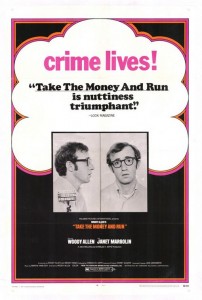
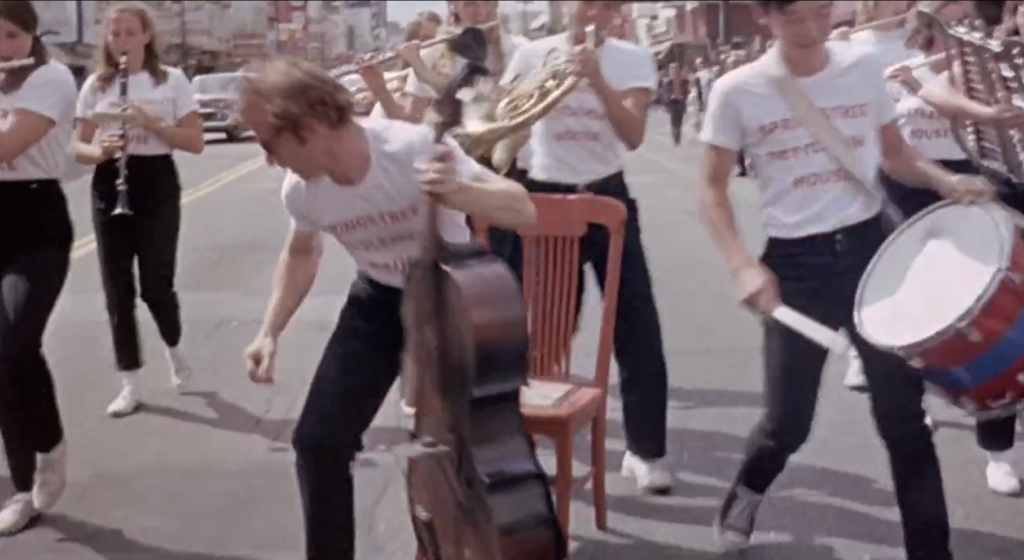
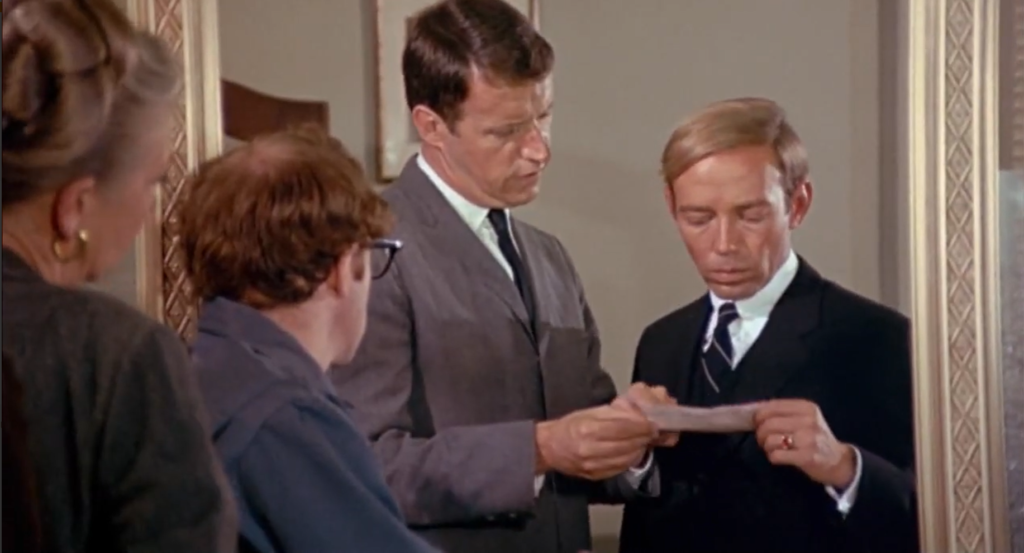
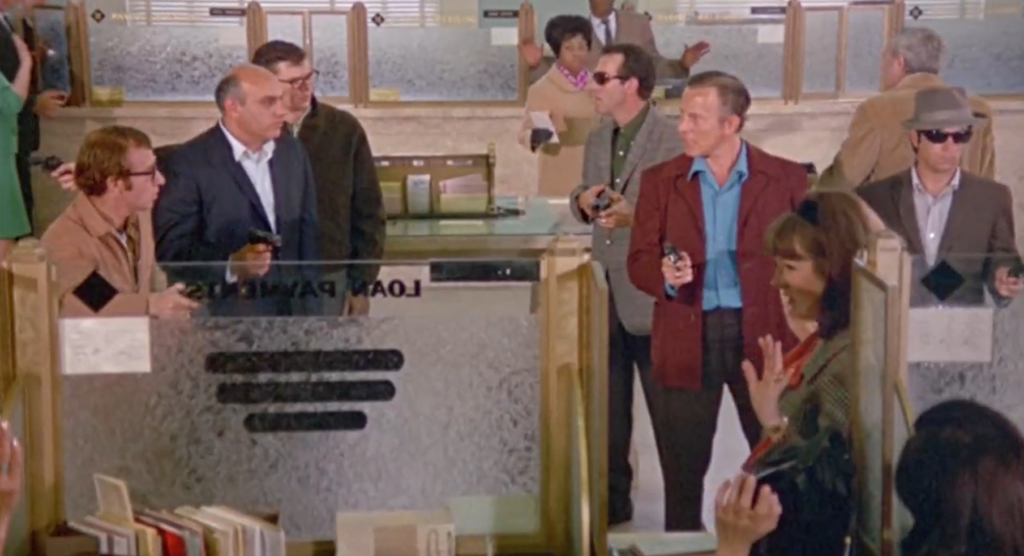
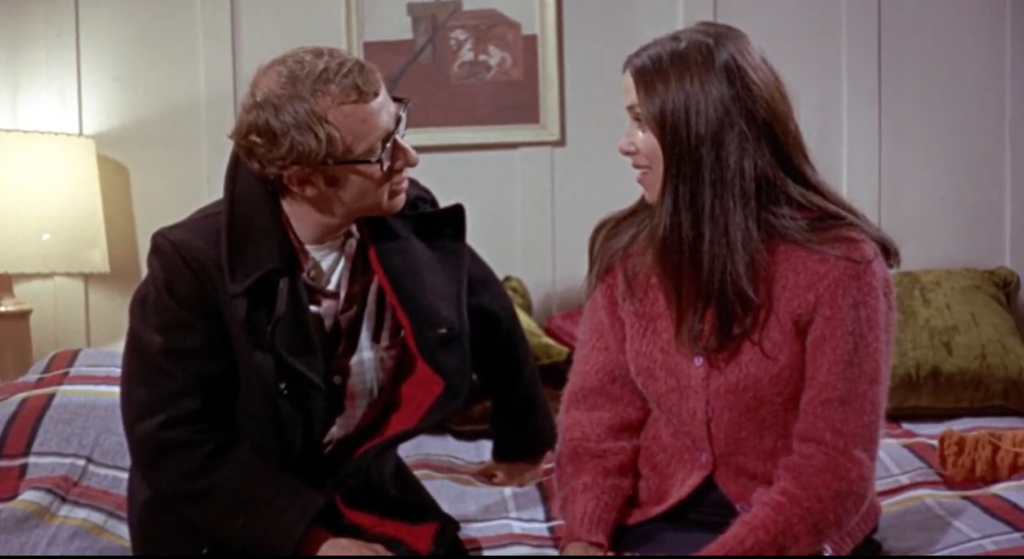
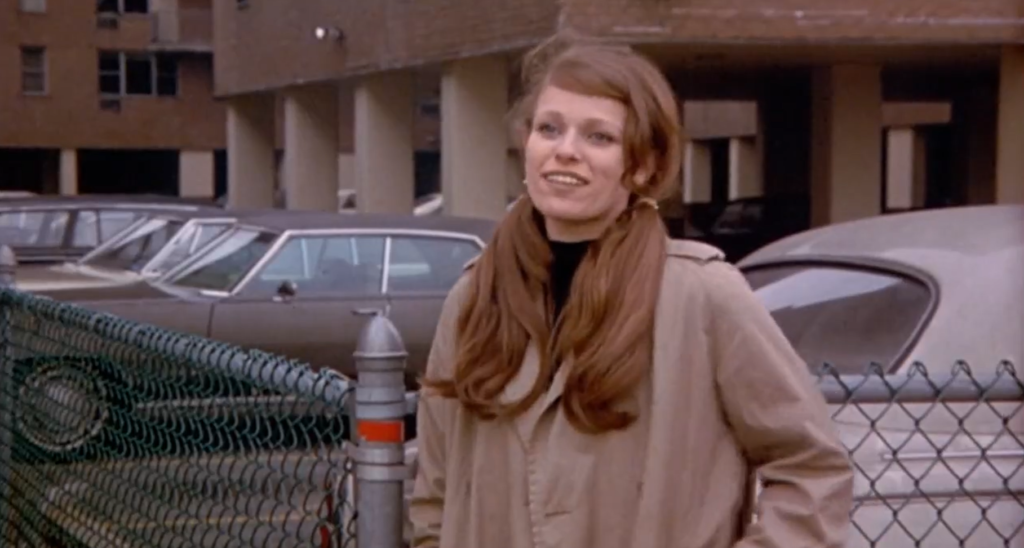
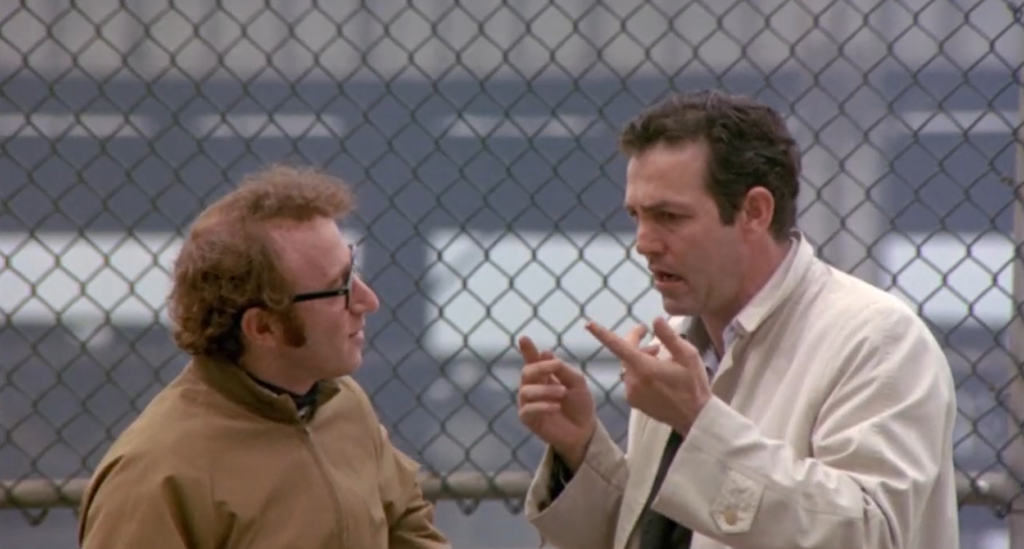
One thought on “Take the Money and Run (1969)”
A must that ffs will want to re-must occasionally.
This one just plain rolls – it’s nice to see again how well it has held up. Prior to reading the TCM “Behind the Camera” article, I was unaware of the particular teamwork effort that made it gel – but gel it does. I don’t find a single thing “immature” or “forced” about the humor (and I tend to be on the lookout for that stuff).
Naturally, it’s going to be more effective your first time out, in that it will probably be a lot funnier. With repeat viewings, this may not overall be as out-loud funny – yet it’s still consistently fresh and strangely charming. For example, the wordplay throughout doesn’t grow old: “I’ll get out of this if it means spending my entire life here.”, etc.
(I don’t have a problem with the son appearing and re-appearing later. It makes sense to me that Margolin has been off taking care of the child while Allen was concentrating on his ‘career’. As well, though it might have been interesting seeing Lasser as co-star, the sweetness generated by Margolin – who, yes, does act quite normal – would have been lost. Lasser does not really do ‘sweet’; she does eccentric – very well.)
Those familiar with most, if not all, of Allen’s work may notice this film as a kind of dry-run for ‘Zelig’ (i.e., the interviews, use of stock footage, heavy reliance on a narrator).
Fave: the entire chain-gang sequence, esp. “My car broke down. Can I use your phone?”